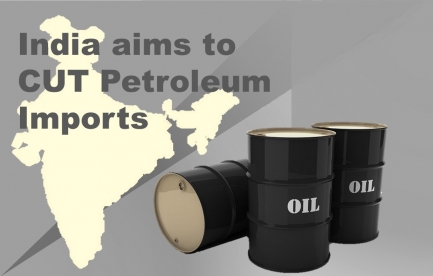|
India is aiming to cut its oil products imports to zero as it turns to alternative fuels such as methanol in its transport sector, a government official said at an investor briefing on Monday.
|

|
|---|---|
|
"We are trying our level best that the day will come when we don't need to import any fuel from any country and that we will be self-sufficient," said Transport Minister Nitin Gadkari at a conference organised by Nomura in Singapore. But he could not provide a specific timeline for the target due to challenges with the distribution and availability of alternative fuels such as liquefied natural gas (LNG) in India, he said. "Auto-rickshaws are using LPG (liquefied petroleum gas) now...LNG is important but the availability of LNG and distribution is a big challenge... we have to develop that," he said. India is also planning to start 15 factories to produce second generation ethanol from biomass, bamboo and cotton straw as it aims to develop its mandate to blend ethanol into 5 percent of its gasoline, he added. "Bamboo is available from tribal areas... our vision is to be cost effective, import substitute and pollution free," he said. India imported about 33 million tonnes of oil products over April 2016 to February 2017, up nearly 24 percent from the same period a year ago, government data showed. The majority of the imports comprise petroleum coke and LPG. Energy consumption in India, the world's third-biggest oil consumer, is expected to grow as it targets between 8 to 9 percent economic growth this fiscal year from around 7 percent in 2016/17. To cut the country's carbon footprint, New Delhi wants to raise the use of natural gas in its energy mix to 15 percent in three to four years from 6.5 percent now. India is developing LNG bunker ports and plans to develop its electric vehicle fleet, Gadkari said. By Reuters l Reporting by Jessica Jaganathan l Editing by Christian Schmollinger |
|
Home >> Career Resource >> FAQ
India Aims To Cut Petroleum Imports As It Boosts Alternative Fuel Use
Related Career Resource
By : Source : designinstruct.com l Author : Isaac Gube | July 21, 2017
By : Reuters l Reporting by Henning Gloystein l Editing by Richard Pullin and Christian Schmollinger | October 02, 2018
By : www.nesgt.com | June 25, 2019








